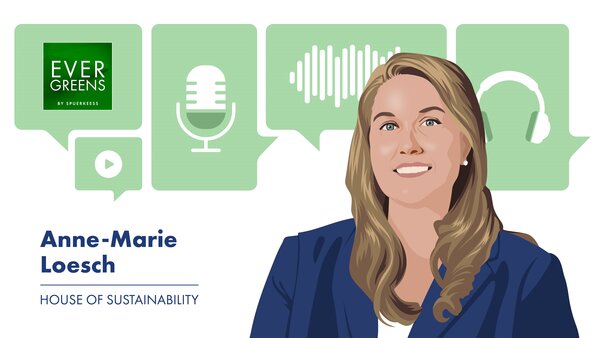FinTech players will gradually try to expand their offerings in all financial areas, whether in the area of loans and credit or investments. One of the major levers will be Open Banking, which allows customers to connect their bank accounts to third-party applications such as credit platforms. In this context, we note that Luxembourg has a fairly unique position in this area, because unlike its neighbouring countries such as France or Germany, there is no “credit file” in Luxembourg, listing the “bad debtors”.
Therefore, it is all the more important for FinTech players to be able to connect to their customers’ bank accounts in a seamless manner. It is true that, from one bank to the next, the user experience will vary greatly, with some incumbent players seemingly ignoring more or less voluntarily their customers’ desire to be able to connect their account to the third-party service of their choice. The various national regulators have once again reiterated their determination to no longer tolerate these superfluous obstacles.
Here again, Spuerkeess is participating fully, as we are convinced that a bank account that can be easily connected to third-party offers will in the future be an increasingly decisive sales argument for the end-consumer. Spuerkeess offers an interface on its S-net, called “Spuerkeess Connect”, which allows customers to view the different connections they have authorised on their account and can block access via a simple click. The same applies to the connection via smartphone, while other banks redirect their customers to a mini-webscreen, on which the customer must authenticate via their LuxTrust certificate, Spuerkeess offers its S-net Mobile customers a 3-click connection via an “app-to-app” process, which is very simple and does not need to use LuxTrust certificate, while offering an optimal level of security.
Another major trend we observe is that of “embedded finance”. This concept aims to take financial services (lending, payments, etc.) out of their “silos” in order to offer them to the customer when and in the context of their need.
We often read that data is the oil of the 21st century. At Spuerkeess, we make every effort to enhance the data and then make it available to our customers. For example, in the different contexts, by simply categorising inflows and expenses via our personal assistant MIA, or via the S-Tax “digital safe”, which automatically detects significant bank transactions for tax returns, such as donations to NGOs, tax advances paid, etc. In this way, the raw data is refined up to the stage of being able to feed an automated process that will help the end-customer file a tax return in a shortened fraction of time.
Cryptocurrencies are attracting both new FinTech players and customers from all sides, who are hoping to see the value of their “coins” multiply. The promise to democratise and simplify access to and use of cryptocurrencies is the challenge incorporated into the leitmotiv of many FinTechs.
Spuerkeess, for its part, showed interest in Blockchain technology very early on, and has just completed a first concrete project to allow students to request the instant payment of their CEDIES student loan, subject to the scanning of a QR code with the S-Net app.
Inspired by Chinese and American apps, such as Tencent, Alipay, Amazon, major international companies are being forced to follow this new trend. The roadmap for many of these players with regard to “super apps” is often limited to offering the purchase and sale of a few cryptocurrencies. Thus, the Klarna, Paypal, Bloc (formerly known as “Square”) are trying to reinvent (some would even say monopolise), the e-commerce shopping experience by offering their own shopping apps, into which an entire set of features are grouped together, such as a price comparison tool, the famous “one click shopping”, automatic pre-filling of the delivery address, split payment, etc.
These are the very first FinTechs, which, after going through many adventures, have now found themselves with stock market valuations exceeding billions or even tens of billions of euros.
Spuerkeess favours collaborations, for example by integrating the “Payconiq” payment solution into its S-Net Mobile app.



![[Translate to English:] [Translate to English:]](/fileadmin/_processed_/9/7/csm_426_EXP_Romy_Reding_Spuerkeess_28mars25_f6a6df7a8f.jpg)
![[Translate to English:] [Translate to English:]](/fileadmin/_processed_/5/8/csm_SP_175_Illustration_422_EXP_Bertrand_Lathoud_Luxembourg_House_of_Cybersecurity_d8f6d97d0e.jpg)
![[Translate to English:] [Translate to English:]](/fileadmin/_processed_/f/5/csm_SP_171_Illustration_420_EXP_Philippe_Parage_CN3_77e5a0f32e.jpg)
![[Translate to English:] [Translate to English:]](/fileadmin/_processed_/5/8/csm_SP_171_Illustration_420_EXP_Lars_Weber_Spuerkeess_301b899cc5.jpg)

![[Translate to English:] [Translate to English:]](/fileadmin/_processed_/8/7/csm_410_EXP_Luigi_Garofoli_Spuerkeess_6fe92987c1.jpg)
![[Translate to English:] [Translate to English:]](/fileadmin/_processed_/7/d/csm_417_RSE_Max_Didier_CDCL_ac53048797.jpg)
![[Translate to English:] [Translate to English:]](/fileadmin/_processed_/1/7/csm_416_EXP_Marco_Rasque_Da_Silva_Spuerkeess__1__33f3f45032.jpg)
![[Translate to English:] [Translate to English:]](/fileadmin/_processed_/9/a/csm_415_EXP_Stephanie_Damge_House_of_Entrepreneurship_ef4a4a81e8.jpg)
![[Translate to English:] [Translate to English:]](/fileadmin/_processed_/3/6/csm_414_EXP_Tom_Wirion_68ffad8a51.jpg)
![[Translate to English:] [Translate to English:]](/fileadmin/_processed_/0/7/csm_Jessica_Thyrion_ESG_080dab77d5.png)